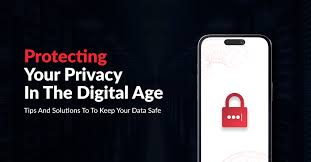Anyone can fall victim to scammers. Cybercriminals don’t just focus on big corporations or easy targets. You could be hit by malware. So could your partner, your parents, your siblings, your friends—anyone.
But not enough people believe this. That means we’re all even more susceptible to cyberattacks.
Why Most People Think They’re Safe From Scammers
According to the 2024 Consumer Cybersecurity Assessment Report, published by cybersecurity firm, Bitdefender, over 75 percent of people don’t believe they’re a target for cybercriminals or aren’t sure whether they are or not. Worse than that, more than 37 percent don’t think they’re targeted by hackers at all.
Everyone knows about scammers and hackers though, so who do those surveyed think are actually falling prey to attacks?
The likeliest candidates are huge businesses with a lot of money and data. Yes, they are big targets. So are medical institutions, politicians, anyone with enough cash to invest in cryptocurrencies, influencers, and other celebrities.
How Hackers and Scammers Target You
The thing is, people think all scams are massive thefts involving ransomware or brute-force attacks. Many forget that scams come in all shapes and sizes. Even if you’re not a millionaire set to lose a vast amount of wealth, unfairly losing anything from $5 to $5,000 will sting.
And that’s not forgetting Personally Identifiable Information (PII), like your date of birth and email address. These things might not seem like they’re valuable, but they are. Otherwise, why would every service you sign up for ask for them?
So how do cybercriminals target you? They do it through various means. There are obvious ways, such as spyware, man-in-the-middle (MITM) attacks, and data leaks.
How I Nearly Fell for a Scam
I’ve been writing about cybersecurity at MUO for many years, so I am very familiar with various types of cyberattacks and scams. I thought this meant that I wouldn’t fall for any sort of fraud.
I was wrong.
Over almost six months, I was targeted by a scammer who gained my trust. She didn’t ask for financial aid. She never asked for too many details. I even questioned her to check she wasn’t an elaborate fraud and she passed those tests. Nonetheless, she put in a lot of time, and details about each other crept out; obviously, however, what she told me was a lie.
Anyone can fall for a scam. No matter how up-to-date you are with the latest attack vectors, you can still be drawn in or make a mistake. So stay vigilant. Everyone is a target for hackers and scammers




0 Comments